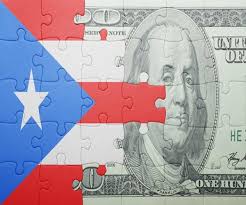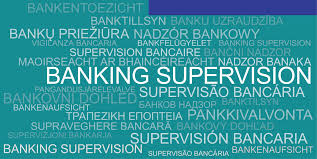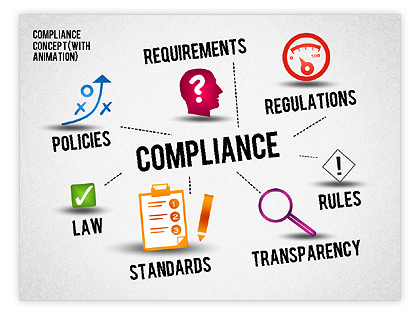Offshore Bank Licenses go the way of the Dodo
Offshore Bank Licenses go the Way of the Dodo
The issuance of offshore banking licenses to anyone willing to put up some cash is a thing of the past. Back in the day, if you wanted to get in to the financial services industry, all you needed to do was find a small Caribbean island somewhere, put $50,000 to $500,000, and open a bank.
Offshore Bank: A bank that can only do business with foreigners. An offshore bank costs much less to open and operate, when compared to a fully licensed bank. These are sometimes referred to as Class B banks.
Fully Licensed Bank: This is a bank with an offshore bank license that can do business with anyone…be they residents or citizens of the country of licensure or foreigners. A country always strives to protect its own, so the barriers to forming a fully licensed bank are traditionally much higher than for an international license. These are usually referred to as Class A banks.
- Editor’s Note: Please click here to read a more recent and detailed article on Offshore Bank Licenses by Mr. Reeves (2014 update).
- Editor’s Note: 2015 Post: Offshore Banking License Jurisdictions
An offshore bank might offer its CDs and investment products over the internet, through brokers in the U.S., and bolster their image by forming non-bank entities in more respected jurisdictions to act as marketing divisions. Even brokerages in the U.S. have created offshore banks and offered high risk / high returns through these entities.
Shockingly, a few of these offshore bank licenses were granted to poorly regulated institutions that became breeding grounds for fraud. One example I am very familiar with is Millennium Bank of St. Vincent. This bank was formed by a Swiss banker and operated under a Swiss Trust Company.
Why a Swiss Trust? When the bank was newly formed, they found it hard to get clients and purchased a 75 year old Swiss Trust Company to bolster their image.
The bank marketed 5 to 20 year CDs at outrageously high interest rates. If you wanted your money back before the maturity date, there were severe penalties. In 2009, Millennium Bank was shut down and charged with operating a $68 million Ponzi scheme.
For more information, see: www.sec.gov/news/press/2009/2009-68.htm
A case that garnered much more attention in the United States was that of R. Allen Stanford. Mr. Stanford formed Stanford Bank in Antigua and began selling investment products in the U.S. around 1992.
It was shown at trial that he repeatedly paid off the Antiguan regulators to hide a $7 billion Ponzi scheme. He was convicted in March of 2012 and sentenced to 110 years in prison.
I would like to note that Stanford also operated a bank in Panama with a full service offshore bank license. In this country, the regulators took their business seriously. When the bank collapsed, everyone with accounts received 100% of their money back. I have U.S. clients today who are still hoping and trying to get some money out of the U.S. brokerage firm and the bank in Antigua.
For more information, see: www.nytimes.com/2012/06/15/business/stanford-sentenced-to-110-years-in-jail-in-fraud-case.html?pagewanted=all
Of course, this is a situation where a few bad apples spoiled things for everyone. Most offshore bank licenses were given to banks offering legitimate and interesting investment products and were quite stable. However, they were bastions of privacy, and the governments of the world took this opportunity to force many of them out of business.
Cases like Stanford and Millennium reflect poorly on a small countries economy and banking sector. When investors perceive risk in a particular country or in the offshore sector in general, they want a higher return on their investment. When traditional banks are forced to increase interest rates paid to clients, their margins decline significantly.
Also, when banks with offshore bank licenses are perceived as higher risk by the major countries, these countries impose more due diligence and limitations on the offshore bank and its correspondent accounts. When the rigors of due diligence increase, the cost of compliance skyrockets and the bank must choose to play along or lose its ability to do business in U.S. dollars, Euros, Pounds, etc.
As a result of the changes to the industry, the only new offshore licenses being issued are to banks with full service charters from a major jurisdiction. For example, if you want an offshore banking license in Panama, you must already have a fully licensed bank in the United States, United Kingdom, etc.
Internet Scams: There are several websites offering to sell offshore bank licenses. Watch out! Most countries require an existing license be “reviewed” when it is transferred. Upon review, corporate capital may be increased, or other barriers may arise, making operation impossible.
So, what is an entrepreneurial international financial services company to do? One can always get a full offshore bank license in an international jurisdiction, such as Panama. If you don’t have the $10m to $20m in corporate capital required, I suggest you consider simpler options for setting up deposit taking entities, offering investment services, providing for Forex trading, etc. Some possibilities are the Swedish Credit Union, a Panama Offshore Financial Company, a Swedish Trust Company, a New Zealand Offshore Financial Company, a master/feeder fund in Cayman or BVI, or a Swiss Trust Company (yes, these are still available, even considering the cautionary tale of Millennium Bank).
The Panama Offshore Financial Company is a relatively new financial entity designed for businesses registered in Panama that wish to offer services such as payment processing, credit card management, the trading of metals, leasing, factoring, etc. These companies can’t take deposits or operate like a bank.
A New Zealand Offshore Financial Company can provide “Bank” type services for individuals and corporations worldwide without limitations on the number of clients, deposit amounts or currency. A NZOFC may engage in the following businesses, but may not use the word “Bank” in its name. It is the entity most similar to an offshore bank license.
-Deposit taking & lending
-Debit and credit services
-Issuing of financial guarantees and instruments
-Cash Management
-Current Accounts
-Term Deposits
-Issuing of CDs
-Wire transfer services
-Fund management
-Marketing of investments
Of course, today’s regulatory environment makes transaction processing, opening and maintaining correspondent (client) accounts, and reporting, a significant challenge. Even with an unregulated entity, such as those described above, owners and operators of companies in the international financial industry must take care and keep up with the many requirements of doing business.
When you combine the changes to the offshore banking industry with the challenges by U.S. and E.U. tax authorities, engaging in any type of international business is certain to become more difficult as time goes on. With legitimate banks forced out of business, privacy and security being lost at every turn, and a mad dash for tax revenues from any and all sources, you take your life in your hands when you operate an international banking or financial services company and, god help you if you stand in the way of the tax man.
In my experience, attacks on international banks and financial service providers are a precursor to assaults on individual liberties. Just take a look at the attack on Switzerland of a few years ago and how that led to persecution of everyday Americans.
We truly live in interesting times. As goes the financial sector goes personal privacy and security. Watch this industry carefully and follow the money!
If you would like additional information on offshore bank licenses and related entities, please contact us at (619) 483-1708 or email info@premieroffshore.com.
Editor’s Note: Please click here to read a more recent and detailed article on Offshore Bank Licenses by Mr. Reeves.












Leave a Reply
Want to join the discussion?Feel free to contribute!